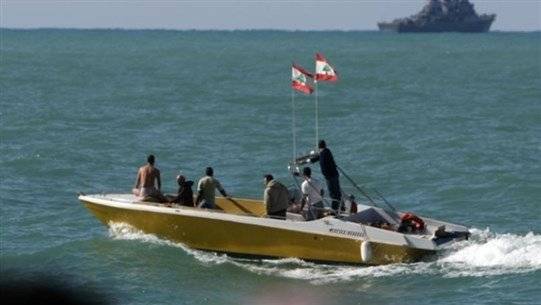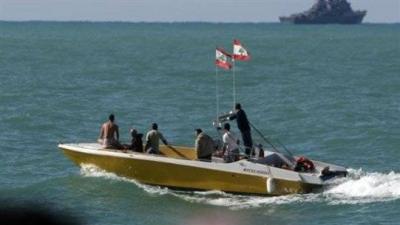Ahmed and Hassan, young men from Meniyeh and Bnain, chose adventure in search of a better future. One of them reached Germany seven years ago, while the other is waiting in Greece for a way to travel to Italy. Their stories of illegal immigration may seem encouraging to some, were it not for the reminder of the hundreds of victims swallowed by the sea.
This migration is unique in the world, almost completely devoid of a specific season; every day, hour, and minute, hundreds of Syrian refugees, along with thousands of Lebanese, prepare to board one of the boats to migrate towards the shores of Cyprus and from there to the promised land in Europe. Just as there are specialists in medicine, commerce, and engineering, there are now specialists in smuggling illegal migrants in Akkar, using illegal fishing boats that are unsuitable for such a mission but have become the only available means for these individuals, without any consideration for the risks that the darkness of the seas holds for them. The smugglers have become known by name and place, with dozens of young men and families seeking to migrate. Names are registered and money is paid for preparing the boat and supplying it with fuel, while the mastermind must choose a gathering point for the travelers, far from the eyes of the security forces, and sailing often occurs at night. All of this is encouraged by those who have succeeded before them.
To Turkey by Air
In 2015, following the daily movement of thousands of displaced Syrians toward Turkey, the port of Tripoli and Beirut Airport saw thousands of Lebanese departing towards Turkey to embark from there to Europe. Ahmed (35 years old) is one of them; before recounting the details of his 29-day journey from Meniyeh to Germany, he chooses to share details about his boring life in Lebanon before his emigration: "After obtaining my second-level certificate, I set my sights on travel, applied to several embassies, and failed to obtain a visa... I spent seven years trying until the opportunity came, and I seized it in 2015. I left Lebanon via Beirut Airport toward Turkey. There, you have to look for a boat to cross to Greece. It wasn't difficult; as soon as you arrive in Turkey, specifically in the Izmir area, you find smugglers scattered everywhere. We boarded a bus that could accommodate 20 people but held about 80, heading towards the Turkish beach. After that, I found myself on a boat meant for about 35 people, but the smuggler overloaded it with around 50, and the journey he told us would last an hour and a half ended up taking about seven hours until we reached Greece."
He continues, "The Greek authorities gave us one week to leave the country; afterwards, we set off, relying on GPS towards the Macedonian border, covering 40 kilometers on foot. The Macedonian lands are fraught with dangers, such as gangs and highway robbers in the forests, in addition to the severe cold. The trip from Macedonia to Serbia took 17 days of walking. The hardest point was upon reaching Hungary, the first country in the European Union, which mandates that migrants fingerprint under the Dublin Agreement, requiring the state to bear responsibility for anyone it fingerprints or issues a Schengen visa to, or who enters through it. After we surpassed this issue, the route from Budapest to Austria to Germany was the easiest, costing me 500 euros that I paid to the taxi driver."
Ahmed spent seven years in Germany, during which he obtained a nursing degree and began working in a hospital. He says, "I visited my family twice a few months ago in Lebanon. I have become their main supporter; if I had stayed in Lebanon and not traveled, my situation today would have been below zero... All the difficulties and problems I went through ended with obtaining residency in Germany."
By Sea to Greece
The stories of migrants in 2022 are not much different from those who came before them; perhaps the smuggling methods change, but the goal remains the same: to reach Europe. Hassan is one of them, having left his area in Bnain in Akkar two weeks ago aboard the boat that departed from the port of Al-Abda and reached Greece. He tells "Al-Akhbar" from Greece that the number of passengers was 80: "We left under the cover of darkness, taking advantage of the lights being turned off at the port of Al-Abda, and we bypassed the security checkpoints set up by the Lebanese army and related to the Lebanese Navy."
Regarding the reasons that pushed him to take the risk, he says: "There is no work, I couldn't get a passport, so why should I stay in this country... Moreover, legal travel requires conditions that many who wish to leave do not meet, such as money and university degrees; thus, we have no option but to venture into the waves of the sea. Everything we are enduring in terms of living and economic difficulties makes treasuring the risk of the sea easier than staying here."
Hassan's destination was not Turkey, as Turkey has tightened its monitoring of smuggling operations; however, security sources confirm that there are still dozens of Lebanese leaving Lebanon via the port of Tripoli or Beirut Airport towards Turkey, and from there, they resort to illegal crossings that are still active while smuggling operations towards Europe continue.
Concerning the dangers faced by migrants traveling directly to Europe, Hassan notes that some stem from "the type of boats, which are not designed to cover such long distances, in addition to the excessive load (passengers, fuel, personal belongings, food...) that endangers the lives of migrants. This was what happened with the last boat that left Al-Abda port; it malfunctioned, threatening the lives of those on board, compelling the driver to head towards a vessel belonging to the Greek navy to rescue them from drowning."
Hassan is currently in one of the refugee camps designated by the Greek police. He says, "The Greek authorities informed us that we have a full week to leave their territory, but we will not return to Lebanon; we want to reach Italy."
Hassan confirms circulating reports that the boat that departed from Al-Abda port carried a number of Lebanese army personnel with their families. Special sources confirmed to Al-Akhbar: "The escape of soldiers in this way will provide additional motivation for more soldiers to flee, especially since the living conditions they endure are pushing them to facilitate the passage of boats through security checkpoints. Meanwhile, military sources remain tight-lipped about the details of the operation, asserting that 'the matter is still under investigation.'"




